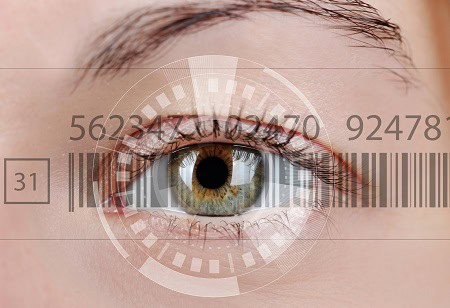Internet Addiction in an Attention Economy
Internet Addiction in an Attention Economy
We Can Use Technology to Practice Moderation
by Thaddeus Camlin, Psy.D.

Internet Addiction and Practicing Moderation
The litany of distractions hurled across our awareness day in and day out affects our focus. It’s no wonder we pump our children full of amphetamines, who could concentrate on algebra for more than a minute when surely there’s a new snapchat story from a BFF, instragram post from a secret crush, and tweet from a favorite celebritician to check? The fear of missing out drives attention away from life and back into the fantasy world that beckons from inside our devices. And so we click, and click, and click, over and over and over. We miss the actual concert because we’re filming it and photographing it and posting it to timelines, and newsfeeds, and status updates. Look at me – I’m lost in my phone while there’s a concert going on around me!
You might also be interested in: Moderation: Recovery’s Best Kept Secret
Cultivating a state of fear and anxiety is the first step in enticing us to click. Advertisers know that we pay more attention when we’re scared and anxious. So, google devised algorithms for what they call “filter bubbles” – slipstreams of technological consciousness designed to cocoon us in a crafted world of information that confirms what we already believe. Filter bubbles know what we’re afraid of, send us information that reinforces our fears to prime us with a state of anxiety, then strike with the accuracy of a stalking feline with an ad for what they already know we’re thinking about buying.
We live in a prescription and purchasing frenzy where the seducing allure of getting crossfaded on xanax and an amazon splurge is too tempting to resist. Unnecessary consumption is the drug and we’re all addicted. In a blistering market vendors are locked in a feverish fury to outdo one another for our attention so they can convince us that we need their product to be happy. Oh you’re scared? I wonder why… well, look over here, buy this, forget about it, you’ll feel better. Repeat. Repeat. Repeat. Last week the Super Bowl reminded us just how much our attention is worth, and the extremes people go to in order to get it.
This year’s Super Bowl showed us that 30 seconds of our attention is worth $5 million dollars. Justin Timberlake’s half-time show offered a glimpse of the extremes that must be taken in order to keep us interested. JT managed to squeeze 11 songs into 13 minutes, suggesting that some marketing algorithm probably calculated that we will lose our interest in music after about 60 seconds. If anyone in a marketing meeting actually suggested that someone perform a song in its entirety they’d be laughed out of the room and fired.
Have we really lost our ability to listen to a whole song? Absolutely not. In fact, any entertainer who dared perform an entire song would probably earn some credibility as an artist rather than an industry puppet. The people fighting over our eyeballs assault them ceaselessly because we pay attention to their speed-dating parade of colorful junk. If we turned off push notifications, didn’t skip songs on spotify before they were over, logged on to social media once a day, checked our electronic leash five times a day, turned on the television five times a week, and engaged in focused activities for more than 15 minutes at a time the eyeball industry would adjust. If we moderated technology successfully, we’d take back the reigns on the consumer carriage careening towards calamity.
Internet Addiction – Breaking Addictive Patterns
If we don’t follow the media the media is forced to follow us. If we break the addictive pattern of relentlessly turning our eyes to electronic distractions we regain the driver’s seat in our own consciousness. We have tangible gold and technology has snake oil, yet somehow the Bezos brigade duped us into thinking they hold the signaling brazier. We have the power over our attention and we give it away to the vice. Like any addictive behavior, the cycle is broken when we realize our own power and decide to take it back.
See also: Moderation: Recovery’s Best Kept Secret
